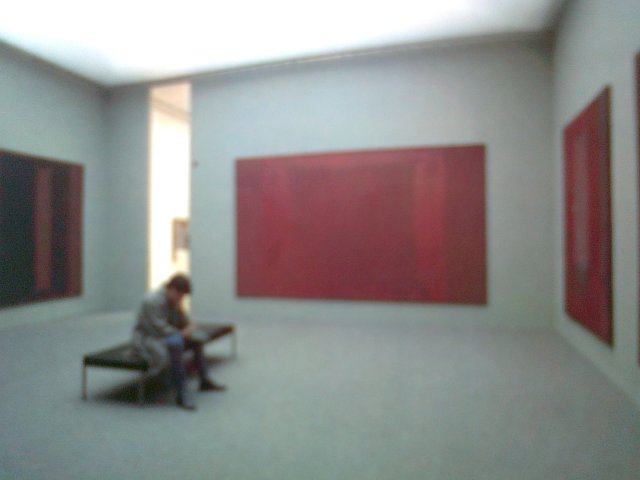Sometimes poems aren’t literal representations
of anything. Sometimes
a poem just exists
as something else in the universe
that you haven’t encountered before.
If you want a poem to say what it means,
right away, clearly —
and of course the poet who writes that kind of poem
is usually talking about his or her own experiences —
well, what happens when you read that kind of poem
is that it puts you back in the world that you know.
The poem makes that world seem a little more comfortable,
because here is somebody else
who has had an experience like yours.
But you see, these little anecdotes
that we read in these poems and that we like to believe
are true, are in fact fictions.
They represent a reduction of the real world.
There’s so much in our experience that we take for granted —
we don’t need to read poems
that help us to take those things even more for granted.
People like John Ashbery or Stevens do
just the opposite —
they try to explode those reductions.
There’s a desire in Ashbery, for example, to create perfect non
sequiturs, to continually take us off
guard.
He creates a world that is fractured.
It doesn’t imitate reality.
But, looking at it from another point of view,
you could say that it’s simply a world
that is as fractured and as
unpredictable
as the world in which we move every day.
So there’s an element of delight in these people
who rearrange reality.
We usually hang on to the predictability
of our experiences to such an extent . . .
and there’s nowhere else where one can escape
that as thoroughly
as one can in certain poets’ work.
When I read poetry, I want to feel myself suddenly larger . . .
in touch with—or at least close to —
what I deem magical,
astonishing.
I want to experience
a kind of wonderment.
And when you report back to your own daily world
after experiencing the strangeness
of a world sort of recombined and reordered
in the depths of a poet’s soul,
the world looks fresher somehow.
Your daily world has been taken
out of context. It has the voice
of the poet written all over it, for one thing,
but it also seems suddenly more alive —
not as routinely there.
Mark Strand, interviewed in the Paris Review by Wallace Shawn, The Art of Poetry No. 77

Love it 🙂
LikeLiked by 1 person
Thank you!
LikeLiked by 1 person
a beautiful arrangement of thoughts and words on reading poetry… finding the strange in the familiar and the familiar in the strange has always been a potent mantra for me in creative work… “suddenly more alive – / not as routinely there…”
LikeLiked by 2 people
Thank you for saying so!
LikeLike
Very nicely written, and made me think. Thank you.
LikeLiked by 1 person
Thank you for saying so Judi, Anthony.
LikeLike